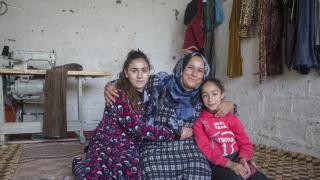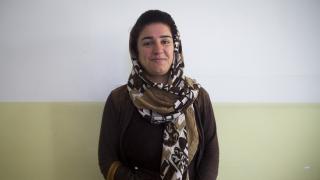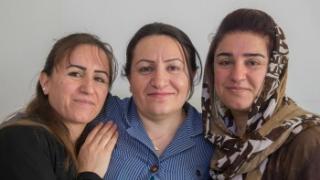Partnerships for Peace: Syrian refugee women lead the way
As the conflict in Syria enters its tenth year, it continues to displace scores of men, women, and children every day.
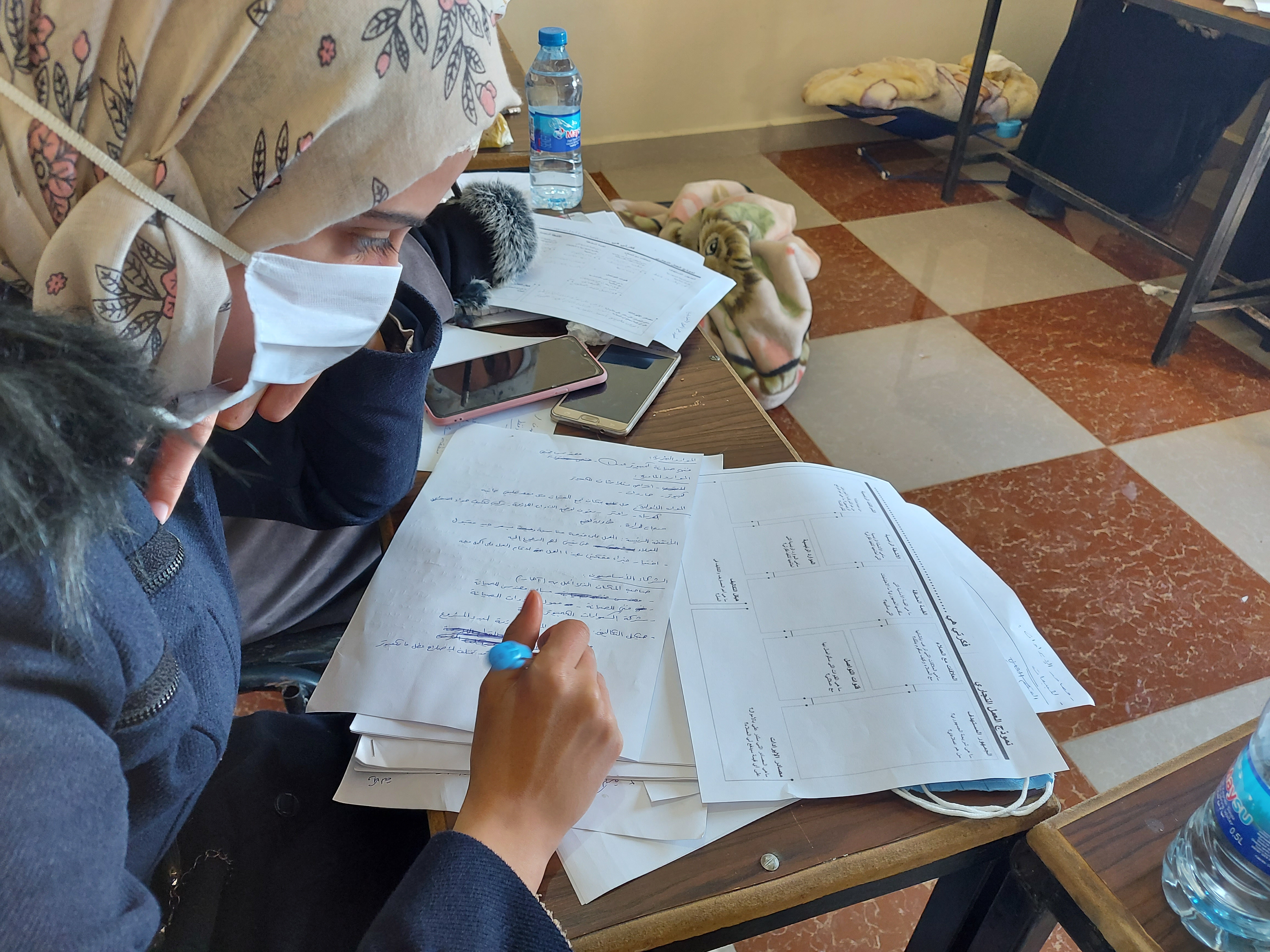
According to the United Nations, there are 6.6 million Syrian refugees around the world searching for safety and stability, 80% of whom are women and children. The people of Syria are fighting for their future. Alongside our partners, Women for Women International has witnessed the remarkable power of Syrian women refugees who are finding their power in extraordinary circumstances.
The Partnership
When conflict ripped through Syria, its citizenry fled to bordering nations including Iraq. Iraq hosts the fourth largest group of Syrian refugees, almost 250,000 people. Our global staff identified partners in Erbil, Iraq to continue to provide training to refugee women displaced to northern Iraq. Ultimately, after several years and the founding of a permanent Women for Women International office in Iraq, our staff were able to locate a group in Syria that directly works with internally displaced women.
In 2020, we forged a partnership through our Conflict Response Fund (CRF) with a local organisation called Women Now for Development (WND) to launch a training programme for internally displaced women in Idlib, Syria. This March, the project in Idlib concluded, and its outcomes are not only a testament to the contextual understanding of local groups like Women Now for Development, but of the unparalleled strength and power of the women of Syria.
The Power of Vocation
The vocational trainings took place over the course of three months at the end of 2020 and into the beginning of 2021. Classes were held three times each week for two-and-a-half-hour sessions and were attended by sixteen women. During sewing coursework, participants learned skills like stitching, taking body measurements, designing clothing, and using a sewing machine. To kickstart participants’ small business after graduating from the programme, WND hosted business administration training, encouraged participants to submit business proposals, and distributed grants to each future businesswoman.
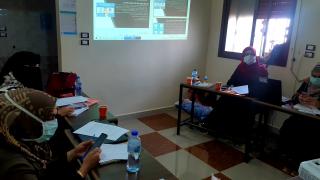
In a country where internet access is limited and women are often excluded from technological innovations, tech literacy can be a powerful tool. The computer maintenance and digital security course was attended by eight women and classes covered topics such as digital security, phishing and exploitation prevention, multi-factor authentication, encryption, and virus protection. Trainees also learned how to download programmes like Microsoft services safely, how to write a CV and how to create social media and email accounts. Similar to the women in the sewing course, the participants of the digital course were encouraged to attend business development training and received grants to jumpstart their careers.
The vocational training was an enormous triumph for the women in Idlib. Together they achieved a 100% graduation rate and, in addition to the cash grants, participants received different types of sewing machines, sewing material, laptops, and tech equipment to help jumpstart their small business endeavours, as well as business development and marketing knowledge. Confidence in the principles of business and technology can open hundreds of professional, social, and personal doors left closed by conflict and trauma.
We learned about project management, marketing, and how to divide profits. We learned to depend on ourselves.
The Language of Confidence
The WND team in Idlib also built a curriculum for 269 internally displaced people and local women surrounding Arabic literacy, math, technology, and English – all conducted fully online.
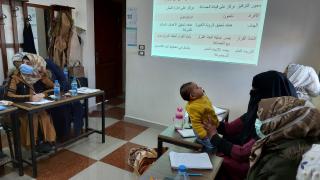
During Arabic literacy sessions, participants were given various writing assignments such as composing narratives about the experience of the working mother. Several participants created presentations around their own experiences as single parents or breadwinners. The opportunity to express one’s own experience provides both emotional catharsis and a chance to build one’s own personality and skill in their language. Learning confidence in one’s language is the keystone to a successful future and confidence in a woman’s individual self and place in her community.
The nearly 100 participants in the Arabic training achieved an 85% graduation rate, and a Zoom graduation ceremony was held during which graduates were encouraged to participate in plays and recite poetry.
On the day of graduation, I had a job interview as an Arabic language teacher. The questions were similar to what we learned in the WND training program, so I was able to show the interviewers what I’d learned, and I was able to get work.
The women in the math course achieved a graduation rate of 80% and those in the English course achieved one of 90%. Several women reported finding jobs immediately after training using the skills and confidence they had built for themselves.
Literacy in a woman’s native tongue opens doors to basic rights in her everyday life, and fluency in math gives her the ability to earn income and manage money in public life. Additionally, a course like this creates an opening for adolescent girls previously forced to drop out of school to re-enrol, creating a ripple-effect through her community and generations to follow. This project is a success story built entirely by the women who participated and their peers and allies.
With resources from our CRF, we strive to create relationships with organisations like Women Now for Development who understand the detailed contexts of their local communities. With partnerships like these, we put the power in their hands and in the women’s hands. And when marginalised women find their individual power, they build their shared power to move nations toward peace, to move the world forward.
Read more
5 Facts About What Refugee Women Face
subtitle:
The amount of forcibly displaced people has reached a staggering number—over 114 million according to UNHCR—and the number only continues to increase. This World Refugee Day, learn about the state of refugees today.
Kabira's Story
subtitle:
Kabira fled from Syria to Iraq where she joined a programme funded by Women for Women International. Read about her experiences overcoming isolation and trauma as she rebuilds her life.
Our Work in Iraq
subtitle:
We are working with women in Iraq to help them overcome severe emotional trauma, teach them about their rights, acquire new business and vocational skills, and form networks for support and advocacy.

